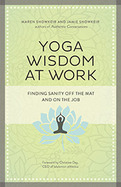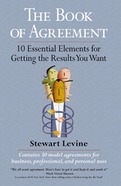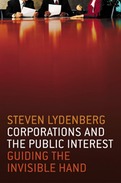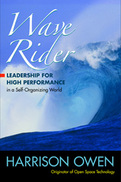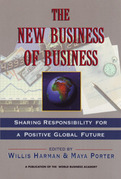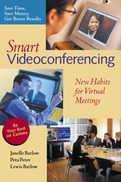2013
- Teaches a fundamental life skill-crafting mutually satisfying agreements
- Describes ten essential elements for designing agreements focused on achieving results rather than providing remedies for what might go wrong-a more effective alternative to the traditional legal/adversarial approach
- Includes thirty model agreements for business, personal, and professional uses
With so many recent examples of corporate greed and abuse of power, there is an obvious need for some kind of check on their behavior. But government has largely given up on regulating business, so what alternative is there?
In this important new book Steven Lydenberg outlines how the government can transform the marketplace so that market forces, rather than top-down regulations, move corporations away from such all too typical practices as plundering natural resources, dumping costs on society, and diverting assets to exorbitant executive payouts.
Lydenberg sees the proper role of corporations as creating long-term wealth--wealth which creates value in relationships with stakeholders, employees, customers and communities The heart of this book lies in a series of recommendations for creating practical tools that individuals and governments could use to encourage corporations to act in the public interest. The keys are information, analysis, and consequences.
Corporations and the Public Interest details how data on the social and environmental records of corporations could be made broadly available; how systems for analyzing, interpreting, and discussing that data can be developed and made accessible to the public; and how investors, consumers and others could use this information to reward those companies who are creating long-term wealth and punish those who are not.
These are not small tasks. Without them, however, society cannot reasonably expect that corporations will be directed to act in the public's long-term interests. Only a systematic approach like the one Lydenberg advocates can move corporations to see beyond this quarter's profits.
- Addresses corporate misdeeds and provides antidotes to scandalous corporate behavior
- Details how government can use the marketplace, rather than regulations, to make corporations act more responsibly
- As a pioneer in the field of socially responsible investing, Steven Lydenberg is uniquely qualified to write on this topic
2008
• By the author of Open Space Technology (over 35,000 copies sold)
• Shows how to achieve extraordinary levels of innovation, insight, and productivity by applying the principles of Open Space Technology to day-to-day management
• Defines eight essential steps to leverage the principles of OST and includes real-world examples of these principles in action
- Brings together a stellar group of today's most creative thinkers in the area of business and global change, including Harlan Cleveland, Joel Kurtzman, Riane Eisler, Patricia McLagan, David Korten, Peter Russell, Hazel Henderson, and many more
- Encourages broad dialogue on the important socio-economic, ecological, and moral questions facing business today
- Examines the responsibility and opportunities of businesses and business people to make significant contributions to the future of humanity
"The business of business is business!"
For many years, this credo, articulated by General Motors President Alfred T. Sloan, Jr., in 1923, has justified virtually every decision made in the business world. Especially in the United States, there was little doubt that the function of the private sector was to provide for the needs of society and to generate wealth. Other matters would be dealt with by public-sector bodies and agencies. To be sure, corporations were called upon to assume a reasonable degree of social responsibility, and the work environment was to be less regimented than in the past, and more encouraging of self-actualization. But both of these were subject to, and to an extent justified by, improvement in the financial bottom line.
But as the world rushes toward the end of the millennium, many people see increasing signs that some sort of fundamental change is taking place. Some trends are clearly with us and generally assumed to be positive-globalization of the economy, continued economic growth, spreading democratization, accelerating technological advance, burgeoning global communication. Other trends are less positive and are, so far, unyielding to remedial efforts-increasing inequality, progressive destruction of the natural environment, increasing concentration of power and wealth, rising unemployment and underemployment together with "jobless growth." Meanwhile, there is spreading talk of a "new paradigm" in the business world, and behind that of emergence of a new worldview. This new world view mandates that we transcend the traditional view of the role of business.
Since 1992, the World Business Academy has published an impressive number of articles aimed at exploring aspects of this emerging "new paradigm" in its quarterly journal Perspectives on Business and Global Change. This edited volume collects twenty-one of these essays from some of today's finest thinkers in the area of business and global change, and stimulates dialogue and debate on the future of business. Their contributions address a broad range of difficult issues-from corporate accountability and money's demise to the spiritual poverty of business-and pose such challenging questions as: What is sustainable change? Is progress possible? What is wise leadership?
Business people in decision-making positions who can influence the way their companies affect the world-executives, managers, financial officers, investors, consultants, business professors, and government policy makers-will want to reflect on these cutting edge essays. Far-reaching in scope, these insightful contributions from important thinkers will appeal to all those who seek a broader understanding of current global socio-economic trends.
- Brings together a stellar group of today's most creative thinkers in the area of business and global change, including Harlan Cleveland, Joel Kurtzman, Riane Eisler, Patricia McLagan, David Korten, Peter Russell, Hazel Henderson, and many more
- Encourages broad dialogue on the important socio-economic, ecological, and moral questions facing business today
- Examines the responsibility and opportunities of businesses and business people to make significant contributions to the future of humanity
- The first book for people participating in virtual meetings, rather than the technical people setting them up
- Addresses participants' most basic concerns: how to reduce distractions, what to wear, how to express oneself effectively, how to speak, and more
- By the bestselling author of A Complaint Is a Gift (over 80,000 copies sold)


